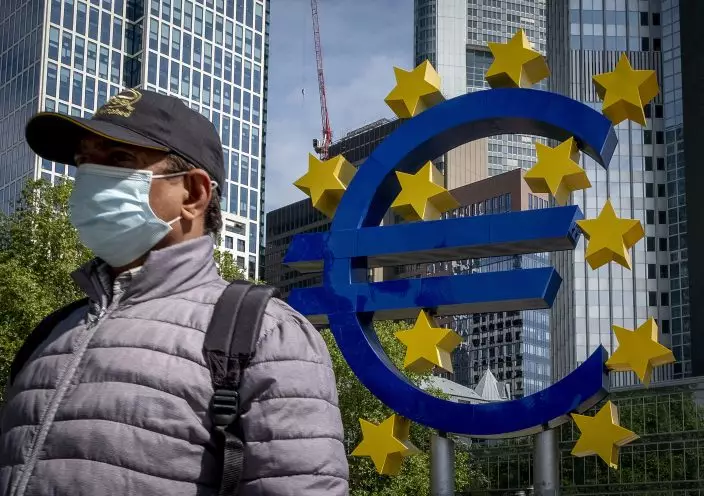The German economy shrank by 2.2% in the first quarter of the year compared to the same period in 2019 amid a global downturn linked to the coronavirus pandemic.
Germany's Federal Statistical Office said Monday that it was the biggest quarterly decline since the 2008-2009 global financial crisis.
Figures show that private consumption and exports were the hardest hit. Investments in the engineering sector, construction and public expenditure helped prevent an even bigger downturn.

A man walks by the Euro sculpture in front of the old the European Central Bank in Frankfurt, Germany, Tuesday, May 5, 2020. Germany's Constitutional Court has ruled that the country's central bank must stop participating in a key European Central Bank stimulus program but gave the ECB time to demonstrate that the stimulus program is needed and appropriate. (AP PhotoMichael Probst)
As Germany's economic dipped 0.1% in the last quarter of 2019, the country has entered what is known as a “technical recession.”


